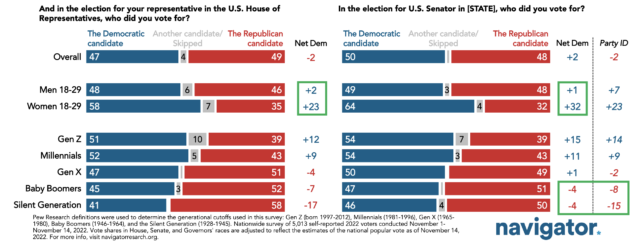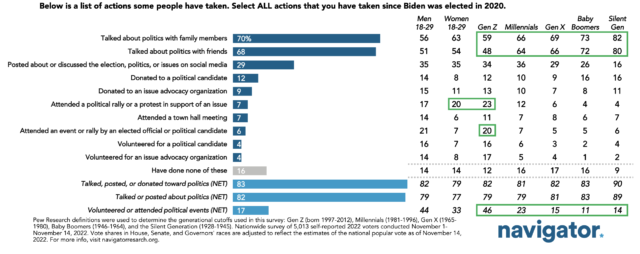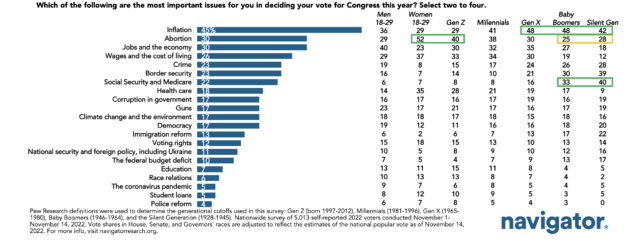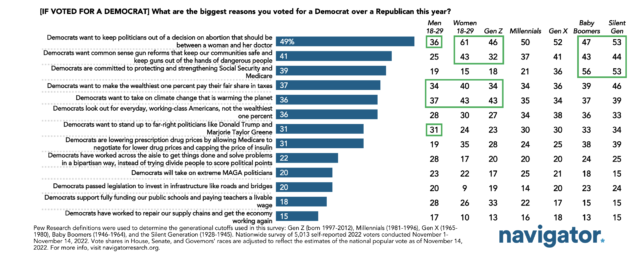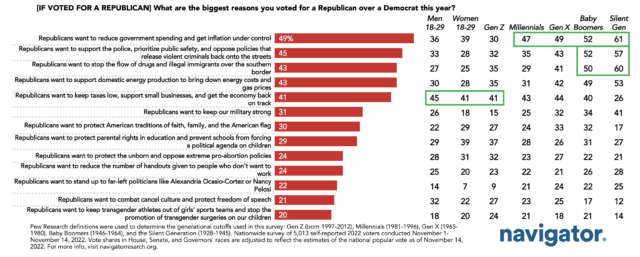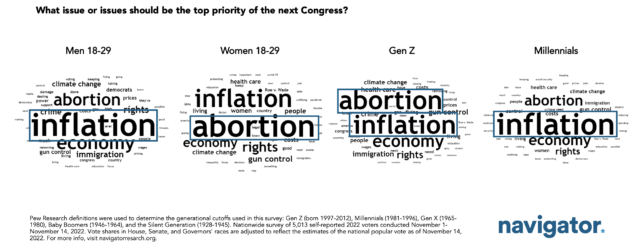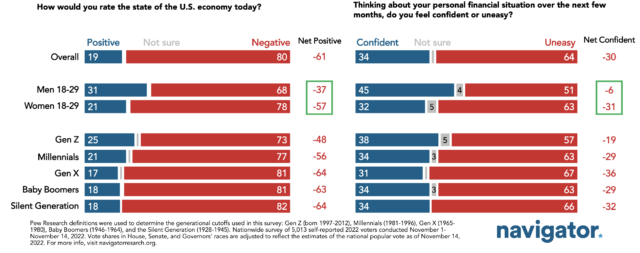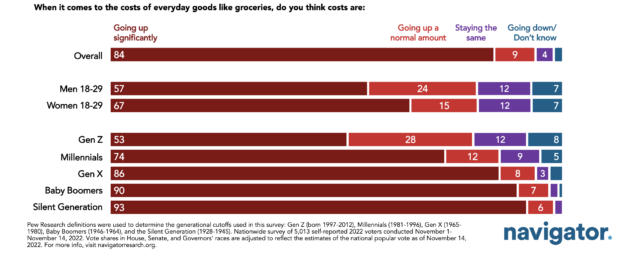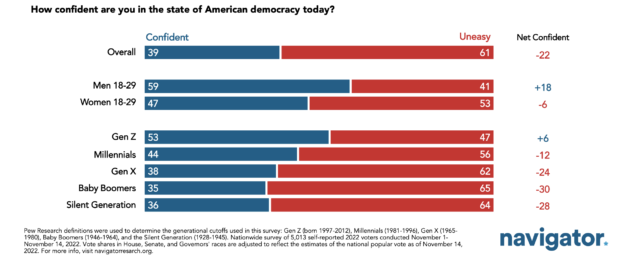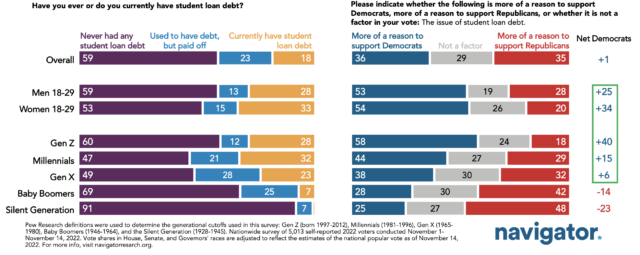What We Did: 2022 Midterm Voters Survey
The slides in this presentation are based on interviews with 5,013 registered voters who had already voted or planned to vote in the November election, with interviews conducted November 1st through November 14th . Support for Democratic candidates and Republican candidates in elections for Governor, Senate, and the House of Representatives have been adjusted to reflect the actual expected results as of November 14th . The analysis aims to provide a new tool for Americans to understand what happened in the 2022 election, why it happened…and what’s next.
Key takeaways
- Younger voters favored Democrats in this election at higher rates than the country overall, particularly younger women, and reported higher levels of political and civic engagement.
- Younger generations were overwhelmingly focused on the issue of abortion, while older voters were focused on issues like inflation, crime, and immigration.
- Voters across generations had frustrations with their personal finances and the national economy.
Younger Voters Broke for Democrats in the Midterms, While Older Voters Leaned Toward Republicans
There was a significant gender gap among younger voters, with women under 30 significantly more likely to support Democratic candidates than younger men
Younger Voters Were Less Likely to Talk About Politics But More Likely to Volunteer or Attend Political Events
Nearly half of Gen Z voters (46%) reported that they had volunteered or attended a political event, compared to 23% of Millennials and fewer than one in six Gen Xers (15%), Baby Boomers (11%), and Silent Generation voters (14%).
Abortion Was a Top Issue for Gen Z Voters & Young Women; Inflation, SS/Medicare Were Priorities for Older Voters
For women under 30 and Gen Z voters, abortion was their top issue (52% and 40%, respectively), while men under 30 prioritized jobs and the economy (40%) and inflation (36%). There was also a significant age gap on health care, with younger voters more likely to cite the issue.
- Voters in the Silent Generation (40%) and Baby Boomers (33%) were particularly likely to prioritize Social Security and Medicare.
Young Voters Cited Abortion, Climate, Taxing the Wealthy, and Gun Reform as Top Reasons to Support Democrats
Older voters were significantly more likely to also cite Social Security and Medicare as top reasons to vote for Democrats over Republicans.
Young Voters Who Voted for GOP Cited Lower Taxes as Main Reason, Older Voters Said Inflation, Crime, Immigration
Older Americans were more likely to cite crime, immigration, and inflation as top reasons to vote for Republicans over Democrats. Women 18-29 also cited parental rights in education (39%) as a top reason to vote for Republicans.
Priorities for Next Congress: Inflation a Top Priority for All, Abortion a Top Priority for Younger Voters
Inflation was the prevailing priority for men 18-29 years old, while abortion stood out more with women in that cohort.
Cross-Generational Economic Frustrations Were Not Limited to Older or Younger Americans
While economic unease was felt across the board, younger women ages 18-29 felt more uneasy about their personal financial situation (63% uneasy) than men ages 18-29 (51% uneasy).
Voters Universally Saw Costs of Everyday Goods Going Up, Though There Was Less Intensity Among Younger Americans
Nine in ten Boomers (90%) and members of the Silent Generation (93%) said the costs of groceries were going up significantly, compared to just over half (53%) of Gen Z voters.
While Many Across Age Groups Were Uneasy About the State of American Democracy, Younger Americans Most Confident
Younger men (+18 net confident) were significantly more confident in the state of American democracy than younger women (-6).
Gen Z, Millennials, Gen X Most Likely to See Student Loan Debt as a Reason to Vote For Democrats
Gen Z and Millennial voters with student loan debt were especially likely to see the issue as a reason to vote for Democrats (62% more of a reason to support Democrats/17% more of a reason to support Republicans).

